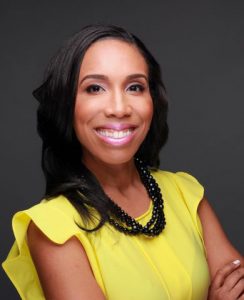On Oct. 23, faculty at Wake Forest University gathered to offer a film screening and panel discussion hosted by the institution’s Slavery, Race and Memory Project, an academic committee dedicated to the “examination of the history of slavery and its implications at Wake Forest.”
The film titled The Prayers of Both Could Not Be Answered and directed by Danny Drysdale, features scholars of religious and American history who explore President Abraham Lincoln’s second inaugural address through the lens of Christian thought. These scholars describe the address, given about one month before the end of the Civil War on March 4, 1865, as a speech about forgiveness and reconciliation informed by the Christocentric consciousness pervasive in the United States at the time.

Alexis Wells Oghoghomeh
“You’re doing it wrong, and God sees it. Now, God seeks to reckon with it,” explains Derek Hicks as he discussed an understanding of the war on slavery through the lens of God’s justice.
For enslavers, winning the war was about what they felt God had empowered them to do and the potential loss of their ability to exercise that power, he says. For the enslaved, the war was about God empowering them to stand against the violence and subjugation they had been experiencing and the freedom they would earn if they prevailed.
The way God dealt with the issue of enslavement during the Civil War, Hicks elaborates, “may very well require that the amount of money piled on the backs of slaved be paid back on the battlefields.”
Hicks and the other scholars throughout the film continue this discussion of theodicy, grappling with questions about how human suffering, divine retribution and the necessity of national healing intertwine within Lincoln’s address.
According to Alexis Wells Oghoghomeh, another scholar featured in the film, Lincoln was “using the language of Christianity to shift the Southern consciousness about what this war meant” to formulate a sense of unity among a divided and broken nation.
Belief in God, then, was the unifying factor for both sides of the war, she says. Lincoln’s speech analyzes God’s response to slavery in such a way that acknowledges the faith pervasive throughout the U.S. while prompting listeners to question how God might be reacting to such an immense amount of human suffering in their land.

Derek Hicks
The panel: Wake Forest history
The film screening was followed by a panel discussion moderated by Hicks, featuring Drysdale, Tony Parent, Sarah Soleim and Bill Leonard. Panelists expanded upon the film by exploring how its discussion of religion and slavery related to the history of Wake Forest.
According to historian Sarah Soleim, ending slavery would have meant grappling with what it means to be a community for WFU students and their families.

Sarah Soleim
“The few sources we do have from this period of 1865 show the Wake Forest community, both Black and white residents, grappling, as Lincoln did, with this question of how a community of people is going to, at their basic level, relate to one another in the aftermath of this huge trauma,” she said.
Southern Baptist minister and professor of moral and intellectual philosophy Washington Manly Wingate was the president of Wake Forest and pastor of Wake Forest Baptist Church before and after the Civil War. Wingate was a slave owner, and research completed by the Slavery, Race and Memory Project has found the selling of enslaved persons for the profit of Wake Forest was connected to his leadership and presidency there.
The campus ceased operations in 1862 and in 1864 was occupied by the Confederacy, who started a convalescent hospital there. When the school relocated from its original campus in Wake Forest, N.C., to its current location in Winston-Salem in 1953, accolades remembering Wingate remained on campus, including a chapel and a road named after him (which have since been renamed).
Wingate University in Wingate, N.C., also is named after him.
Soleim explained that in the 1850s, leaders of Wake Forest Baptist Church (which was originally located in the main school building) commandeered the African chapel located just off campus. Although it is not clear what exactly happened to the Black congregation during this time, church minutes suggest segregation within the church.
After the war was over, Wake Forest Baptist decided to move back into their original building and filed a motion (which was later rescinded) to close the African chapel.
Soleim read from a historical record from just after the Confederacy’s defeat that described Wingate’s “heart writhing in rebellion against the providence of God after hearing of Lee’s surrender.”
He had to reconcile with God, she explained, when he realized the war was over and the Confederacy had not won, which meant there would be an extreme change in the way his community functioned.
Baptists: Unjustifiable justifications for slavery
Leonard, founding dean of Wake Forest School of Divinity and BNG columnist, expanded on this through the lens of Baptist history, going back to 1822 when Baptist pastor Richard Furman wrote one of the first “biblical” defenses of slavery.

Bill Leonard
A portion of the defense states, “Had the holding of slaves been a moral evil, it cannot be supposed, that the inspired Apostles, who feared not the faces of men, and were ready to lay down their lives in the cause of their God, would have tolerated it, for a moment, in the Christian Church.”
The defense continues, concluding, “In proving that slavery is supported by scriptural authority, then we acknowledge its moral authority, for the divine law would not sanction anything that was wrong.”
These arguments, Leonard said, created a specific hermeneutic that Christians could use to “link chattel slavery with biblical authority.” The abolition of slavery disrupted the church’s understanding of God’s dominion and justice in the world. Former enslavers had to re-evaluate their beliefs asserting they were ordained by God to own and abuse other humans because they were faced with a hermeneutic that supported the unfolding reality of Black liberation and freedom.
“One of the great theological problems for Southern Baptists was that they lost the war, and they lost their biblical hermeneutic.”
“They were struggling because Christianity was on the line for them,” Leonard said. “One of the great theological problems for Southern Baptists was that they lost the war, and they lost their biblical hermeneutic.”
This was a double defeat, he explained, because the Confederacy lost both its political ability to enslave and its biblical authority that chattel slavery was OK with God.
As Leonard discussed this history, he told listeners that in Wake Forest Baptist Church’s minutes from January 1865, enslaved members were named “Wingates.”
“The church let slaves worship, but they unnamed them with the name of their reverend owner,” lamented Leonard as he called out the Baptist preacher for restricting their full participation in the body of Christ.
He recited a list of their names during a recent sermon at Wake Forest’s School of Divinity, asking the congregation to say their names freely with him — Isaac, Hannah, Jinnie and Charlotte — acknowledging their humanity in the chapel formerly named after their enslaver.
“I wonder what I may be believing right now,” he said in his sermon, “that someone might stand in this very pulpit in a century and weep, calling me out because I spent 50-plus years as an ordained Baptist minister and still didn’t grasp the truth when Christ’s gospel was right in front of me.”
As Leonard finished his panel response, he reflected on the hermeneutics of Wingate and the other enslavers of the Civil War era, denouncing the unjustifiable “biblical justifications” for slavery.
“What they thought was the Bible,” he concluded, “turned out not to be the gospel.”
Related articles:
Naming and un-naming: Slavery, schools and the present moment | Opinion by Bill Leonard
What to do if you unearth a history of slavery in your church, college or institution?


